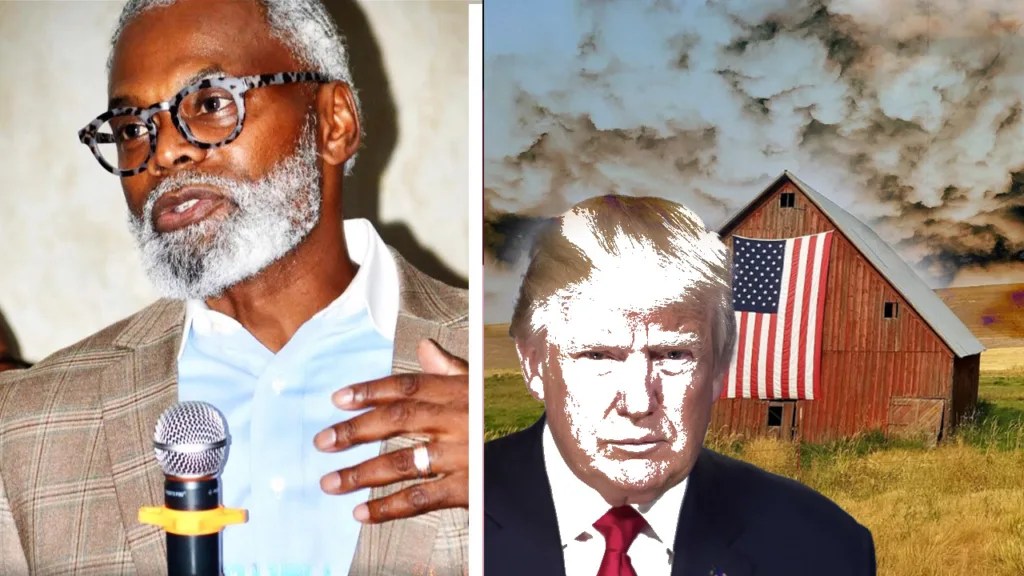An in-depth look at how Trump’s policies on immigration, trade, and tariffs impacted rural America’s economy and cultural fabric.

For years, Donald Trump marketed himself as the champion of “real America”—a figure who promised to uplift farmers, defend small towns, and protect white, rural communities from the perceived threats of globalization and immigration. Yet, as the record now shows, the very policies he promoted have inflicted long-term damage on rural America, while leaving the country weaker, more divided, and increasingly isolated on the global stage.
Take immigration, for example. Trump’s policies restricting migrant labor were applauded by his base, but the reality is that America’s farms, dairies, and meat-processing plants depend heavily on immigrant workers. By choking the pipeline of seasonal and permanent labor, small and mid sized farmers were left scrambling to fill jobs that American workers were unwilling to take. Many farms simply could not compete, leading to bankruptcies across the Midwest. What was framed as protecting jobs for Americans has, in truth, hollowed out rural economies.
Tariffs were another blow. Trump’s trade war with China devastated farmers who relied on foreign markets. Soybeans, a cornerstone of U.S. agriculture, were hit especially hard as Chinese purchasing plummeted. Once the top export market, China turned to Brazil and other suppliers. Rural communities that counted on soybean sales watched demand collapse, and though Trump offered bailout subsidies, they fell far short of restoring stability. Farmers did not want handouts; they wanted fair markets. Instead, they received uncertainty and financial strain.
The ripple effects extended into construction and homebuilding. Tariffs on steel, aluminum, and lumber drove up costs for builders. Small contractors in rural areas, already pressed thin, faced skyrocketing material prices. Projects slowed, housing shortages worsened, and the very people Trump claimed to protect—working-class homeowners—were priced out of affordable housing options.
Beyond economics, the deeper tragedy is cultural. Many who embraced MAGA were not only blinded by false promises of prosperity but also drawn by an underlying desire to punish “urban America,” Black and brown communities, and immigrants. This resentment was weaponized for political gain, but it left rural America holding the bag.
By nearly every metric, Trump’s promises have gone unmet. He vowed lower prices, but inflation rose under his trade wars. He pledged “no wars,” but left behind heightened global instability. He touted economic greatness, but his record pales when compared with President Biden’s: unemployment under Biden fell to historic lows, wages increased, and GDP growth outpaced Trump’s final years. Meanwhile, America’s global standing suffered, with European allies and Canada questioning the reliability of U.S. leadership. China and other economies seized market share once dominated by American exports, further eroding our influence.
Even liberties MAGA supporters claimed Trump stood for—free speech, constitutional rights, and “draining the swamp”—have eroded. The country finds itself in a constitutional crisis, with basic democratic norms under attack. Ironically, America now resembles the very regimes it once condemned: leaders unchecked, rights under siege, and institutions weakened. What remains is not the greatness Trump promised, but a hollow “impression” of greatness—an illusion that never included all Americans, particularly those historically excluded from prosperity.
MAGA supporters must now face responsibility for the declining state of the nation. By fueling policies built on division and resentment, they have undermined the very Constitution they claim to revere. The United States is a shadow of its promise, dragged down by authoritarian impulses and culture wars that distract from genuine progress.
Yet, even in this sobering reality, there remains an opportunity. Those who have been active—or complicit—in supporting destructive policies can still choose a different path. They can reject leaders who exploit hate and division, and instead demand policies that heal, strengthen, and honor the Constitution’s spirit. The question remains: how do you define “great”? And are we truly any closer to that definition?
#RuralAmerica #MAGAImpact #EconomicPolicy


